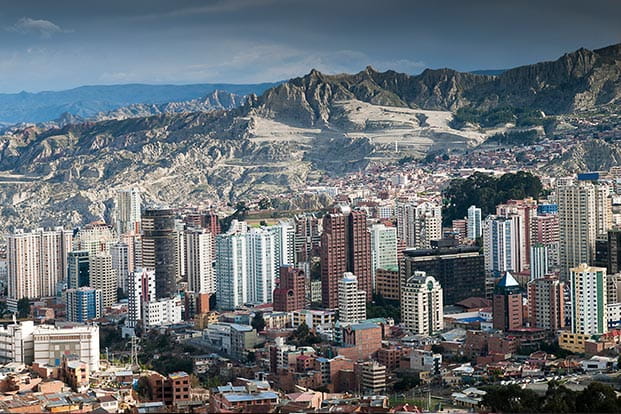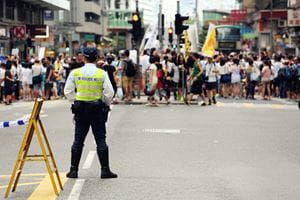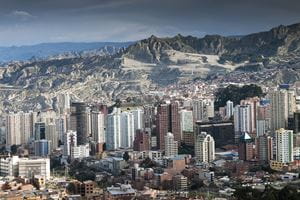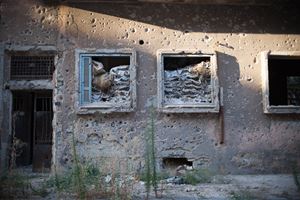
This month's security bulletin focuses on:
- Hong Kong
- Bolivia
- Chile
- ISIS
Hong Kong

The last week in Hong Kong may prove to be a watershed moment. Protests had continued along similar lines since the unrest first began in June of this year, but a series of escalations occurred on 11 November and over the preceding weekend that may well indicate a significant change. On 8 November the death of Alex Chow was announced by Doctors at the Queen Elizabeth hospital. Chow received his injuries as a result of a fall from a carpark when attempting to evade police tear gas. Arguably the first direct fatality attributable to the security forces. On Monday 11 November two incidents occurred that highlight the deterioration in the situation. In one a protester was shot in the chest by the police and in the other a pro-Beijing individual was set on fire by protesters after remonstrating with them. Both individuals are currently in critical condition in intensive care.
The standard advice for travellers remains in place – stay aware of planned protests and developments (check announcements from the Hong Kong police website and twitter account). Allow for additional travel time during planned protests and avoid areas they are due to take place (including MTR stations in the vicinity). Ensure that contingency plans are in place in the event of airport closures or other disruption to flights, roads or rail links. Additionally, given the escalating nature of the situation it is important to review triggering events that would necessitate a change in security posture, if nothing else to ensure that as an organisation or individual you are not becoming desensitised to changes as they occur over a number of weeks.
Bolivia

Over the weekend the Bolivian president Evo Morales resigned. Having lost the support of the military he framed his departure as a military coup, a sentiment echoed by Mexico and Russia. The FCO advised against all but essential travel to the country as the protests which had intensified since the results of the election on 20 October were called into question are set to continue. The army have been called into back up police against pro-Morales demonstrators.
The problems started even before polling booths opened when Morales was controversially allowed to stand for a fourth term. His eventual narrow victory was met with claims of corruption from opposition supporters which were lent strength when the monitoring group the Organisation of American States called for the results to be cancelled as there had been “manipulation”. At least three people died as the violence increased. People due to travel to Bolivia in the short term should reconsider the need for the trip and look to see if they could achieve their goals through other means. If unavoidable remain flexible and ensure you maintain regular review of departure possibilities.
Chile

Protests initially against plans to raise the metro subways fare in Santiago escalated on 18 October when protesters disabled many metro stations due to the extensive damage they inflicted. A state of emergency was authorised on the same day and a curfew on 19 October. Protests soon spread to other cities across the country and the state of emergency was extended. At least 20 people have died as a result of the unrest.
Despite calls for his resignation, President Pinera has so far given no indication that this is an option, stating on 4 November that he will not step down.
Large scale protests are still occurring and should be expected in Santiago and other large cities. The main reasons that the situation developed beyond simple fare increase complaints, corruption and inequality, have yet to be addressed and whilst the president has said that he will draft a new constitution for many this is too little too late as further nationwide strikes and demonstrations held on 12 November show.
Travellers should avoid any public gatherings due to the associated risk of violence as well as the potential for summary deportation from the country if involved.
ISIS

The death of Abu Bakr al-Baghdadi marks the end of an era for the self-proclaimed caliphate of the so-called Islamic state. Deprived of almost all their territory, the location, raid and subsequent suicide of Baghdadi draw a line under the recent history of the organisation. However, it is unlikely that it will have any profound impact on the day to day operations of ISIS. As the worlds most wanted terrorist Baghdadi, much like bin Laden, had to severely restrict his communications and interactions with the wider network of fighters. ISIS has proved to be resilient over the past few years and has had to go back to its guerrilla heritage as its territory has been whittled away. Given how removed from the day-to-day Baghdadi has been I imagine that succession plans have long been in place and that operations have developed to not rely on a central chain of command.
It should be remembered that ISIS is an evolution of an al Qaeda branch and with the announcement of Abu Ibrahim al-Hashimi al-Qurashi a shadowy replacement for Baghdadi it remains to be seen if ISIS will retain its relevance. Whilst the wider issues and sense of grievance remain though, we haven’t seen the last of this particular threat.







